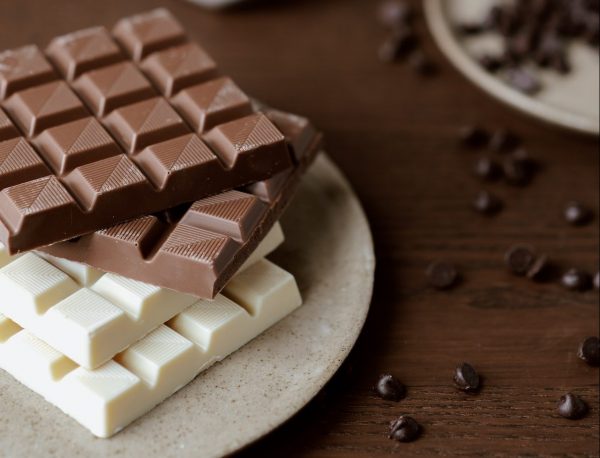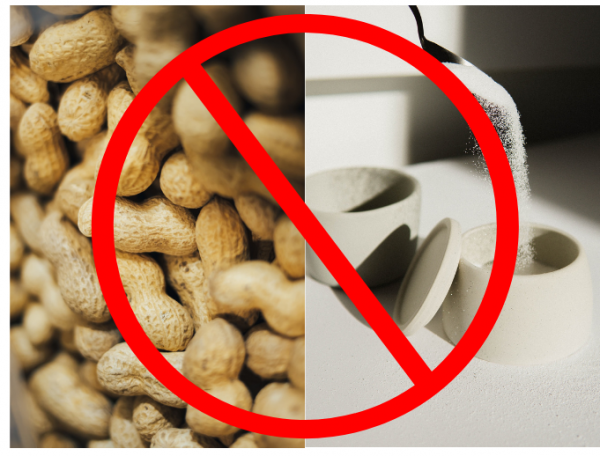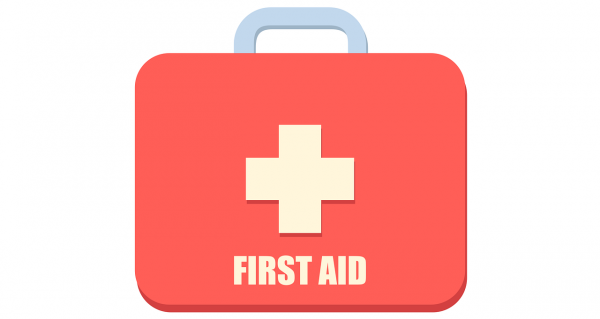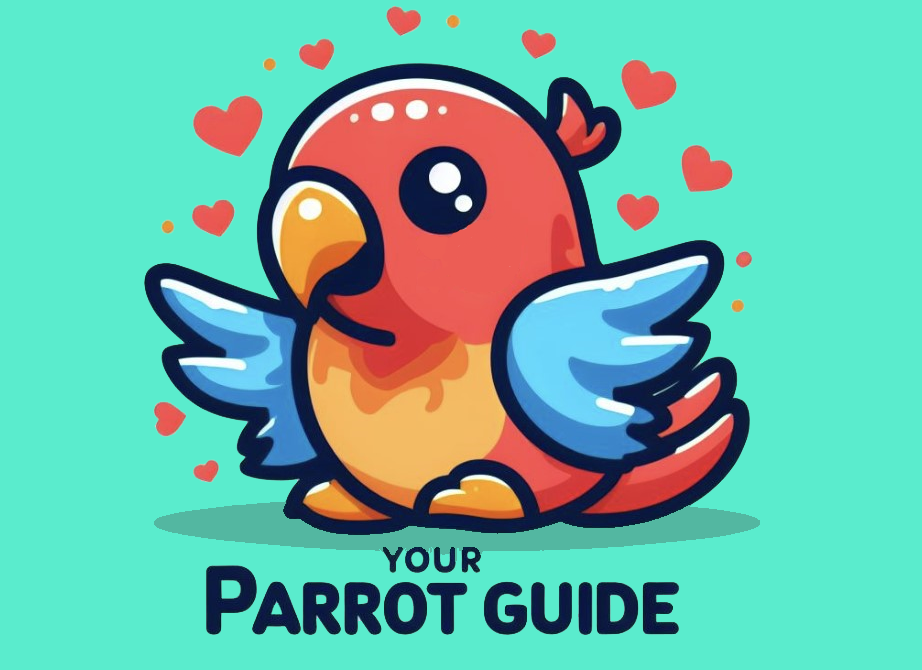African Grey parrots typically eat a diet of fruits, vegetables, nuts, and seeds. However, there are some foods that are toxic to African Grey parrots and should be avoided. In this blog post, we will discuss all about the toxic and unsafe foods that an African Grey Parrot should NOT eat, the signs that a parrot will show when ingesting toxic food, as well as what to do if that happens.
List Of Toxic Foods
Avocados
All parts of the avocado plant are poisonous. This includes the stems, bark, leaves, and flesh as well as the skin and seed of the fruit. The source of the poison is a fungicidal toxin called persin, which is present in avocados. Parrots are very sensitive to the toxin, which will cause breathing difficulty, cardiac distress, and eventual heart failure.
Chocolate
Chocolate is highly toxic and should never be given to your parrot. It can contain not one, but two toxins: theobromine and caffeine. Both of them come from a group of stimulants which are called methylxanthines.
If your African Grey parrot happens to ingest some chocolate, they will most likely experience vomiting, diarrhea, tremors, and even seizures and death. Remember that all types of chocolate are poisonous. This includes baking chocolate, dark chocolate, and cocoa powder which have the highest toxicity, while milk chocolate and white chocolate have the lowest, without that meaning that your pet parrot could have it.

Alcohol
All of the beverages as well as potential foods that could contain alcohol are toxic. You should never offer or allow your parrot to have any alcohol. You should be extra careful when leaving your African Grey parrot unattended even for a moment, as they could drink a bit from a forgotten glass of alcohol which will then can have fatal consequences.
Coffee and caffeinated beverages
Caffeine can be found in coffee, tea, soft drinks, energy drinks as well as chocolate, and is toxic to parrots. If your parrot consumes any product which contains caffeine, they can experience hyperactivity, raised and irregular heartbeat, seizures, and cardiac arrest. You can enjoy your coffee with friends, but please keep it away from your feathered friends!
Fruit Seeds
Fruits like apples, cherries, peaches, apricots, nectarines, pears, and plums can be fed in moderation after their seeds and pips have been removed from them. But generally, if you are not sure about some fruit seeds, it’s better to avoid giving them to your parrot, rather than being sorry later.
Tomato leaves, stems, and white parts
Your African Grey parrot can enjoy a fresh and washed tomato, but make sure you will remove all of the green parts (leaves, stems, and vines) and will cut off any white parts that might be inside of it, as they are highly poisonous.
Onions
Onions, in any form, are toxic to parrots. Regardless if the onion is raw, cooked, or dried, the toxic ingredient remains present. Exposing them to onions can cause vomiting, diarrhea as well as other digestive problems. It has also been found that it can lead to hemolytic anemia, which is followed by respiratory distress and eventual death. An African Grey parrot can be poisoned by consuming as little as 2 to 3 grams of onion.
Mushrooms
Mushrooms are a type of fungus, and have been known to cause digestive upset in pet parrots. Caps and stems of some mushroom types can also induce liver failure. You can keep mushrooms on your pizza but away from your African Grey parrot.
Dried/Raw beans
Even though cooked beans are really nutritious and a must in your African Grey parrot’s diet, providing raw/dry beans to them is poisonous. Dry beans contain hemagglutinin, which is toxic to parrots. Make sure you cook those beans well before serving them to your little ones.
Salt
While all living beings need regulated amounts of sodium in their systems, too much salt can lead to a host of health problems in parrots, including excessive thirst, dehydration, kidney dysfunction, and death. You don’t need to be adding salt to your African Grey parrot’s food.
Many vegetables are rich in sodium themselves. Some of them are celery, spinach, carrots, and beets, which are allowed and healthy for your parrot!
Rhubarb
Rhubarb is not safe for African Greys because it contains oxalic acid, which is toxic to parrots and can lead to kidney failure when consumed. Humans might often add sugar to make it sweet and to neutralize oxalic acid, but keep in mind that sugar is also harmful to parrots. That’s why feeding your parrots rhubarb in any way is not allowed.
Unsafe Foods You Should Avoid
Peanuts: Peanuts contain aflatoxins which can cause Aspergillosis to your African Grey parrot. In some cases, they can also contain mold, which is also toxic to your parrot. It’s better to replace peanuts with some safer and much healthier nuts, in order to protect your little friend. You can check out some healthy and delicious nuts for your African Grey Parrot here.
Sugar: Even though sugar is not labeled as toxic, it can lead to serious health issues when consumed in high dosages. Remember that your parrot would not eat sugar in the wild, so it’s best to avoid it as much as you can.

What Are The Signs Your African Grey Parrot Ingested Toxic Food
A poisoned parrot will display one or more of the common poisoning signs shown below:
Diarrhea, Lethargy, Vomiting, Falling from perch, Staggering or lack of coordination, Seizures, Increased urination, Blindness, Depression, Tremors, and even Coma.
If you believe that your African Grey parrot may have ingested any toxic food, you should go to an avian vet as soon as possible, as even a few minutes or hours can end up being life-saving.
What To Do If Your African Grey Parrot Ate A Toxic Food
If your African Grey parrot has consumed toxic food, make sure you remove the toxic food and you move your parrot to safety. Call your Avian Veterinarian right away to set an emergency appointment and don’t forget to collect a sample of the toxic food as well as your parrot’s latest droppings. That can help speed up the process of curing your feathered friend.
Also, having an emergency first aid kit handy can help you treat your African Grey parrot as much as you can, before or while heading to your avian vet.

Your emergency parrot first aid kit should include but not be limited to:
- Locking Forceps or hemostat – to pull broken blood feathers
- Tweezers
- Styptic powder and/or Cornstarch – that will help to stop toenail or broken blood feather bleeding
- Sterile gauze bandage or Telfa Pads – to cover wounds or burns
- Vet wrap
- Bottle of Eye & Skin Wash – to flush wounds or eyes
- Cotton swabs and balls – for cleaning wounds
- Medical tape (not waterproof)
- Betadine or iodine solution
- Hydrogen peroxide
- Pedialyte (electrolyte solution for children) – to keep your African Grey parrot hydrated
- Popsicle sticks – for splinting
- Adhesive Tape
- A pair of Scissors – for cutting tape, bandages
- Heating pad or lamp – to keep your African Grey parrot warm
- A magnifying glass might come in handy in some cases
- Penlight or flashlight to aid in lighting wounding area, eyes, or mouth
- A pair of latex gloves for you – to minimize infection
- Hand Wipe – for personal cleanup
- Clean towel(s)
- Parrot Emergency Information Card – with vet’s contact information
- Parrot’s medical records
